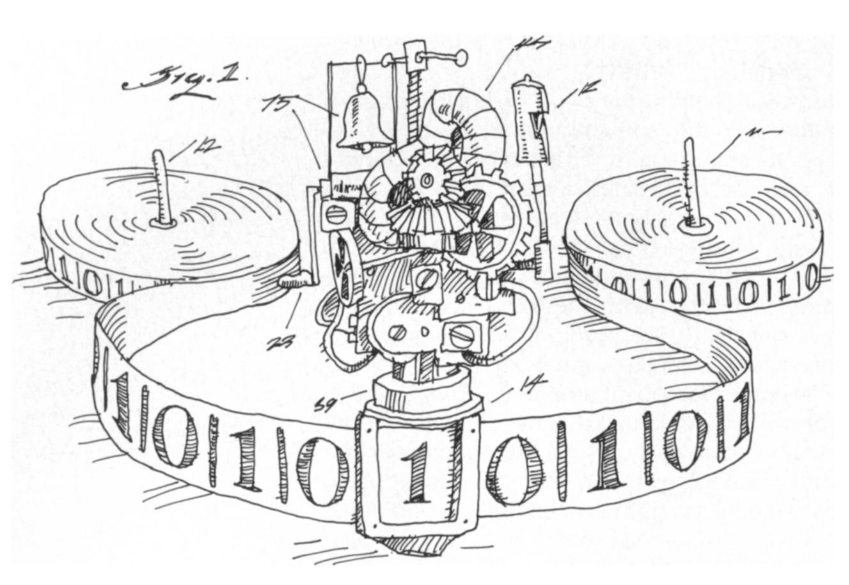If you believe in the following, I am going to try to change your mind:
“Turing machines aren’t realistic. They need infinite memory so they can’t be implemented. Any real computing device is limited in its memory capacity and, therefore, equivalent to a finite state machine.”

This is a fairly commonly held view. I used to believe in it myself, but had always found it deeply unsatisfying. After all, modern-day computers have limited memory capacity but closely resemble Turing machines. And Turing’s abstract formulation arguably led to the digital revolution of the 20th century. How, then, can the Turing machine be a physically irrelevant mathematical abstraction? If all of our computers and devices are of the weaker class of computers, namely, finite state machines, why do they have to look so much like Turing machines?
It is important to clarify this, especially for neuroscience and computational biology. If we think of Turing-equivalence as this abstract level of computation that is impossible to physically achieve, then we block out classical insights from the theory of computation and cannot even begin to ask the right questions. (I recently wrote a manuscript asking the question “where is life’s Turing-equivalent computer?” and showed that a set of plausible molecular operations on RNA molecules is sufficient to achieve Turing-equivalent computation in biology).
It took a good amount of reading and thinking to finally understand the meaning of Turing-equivalence. I will explain what I believe to be the only consistent way of looking at this issue. Here is the short version:
When we say Turing machines require “unbounded memory”, what we mean is that memory cannot be bounded by the systems descriptor, not that it cannot be bounded by other things such as the laws of physics or resource constraints. Turing-equivalence only requires a system in which memory usage grows, not one in which memory is infinite.
Below I explain precisely what all that means. I will try to convince you that this is the only consistent way of looking at this and that Turing, himself, shared this perspective.
Continue reading “Can a finite physical device be Turing-equivalent?”